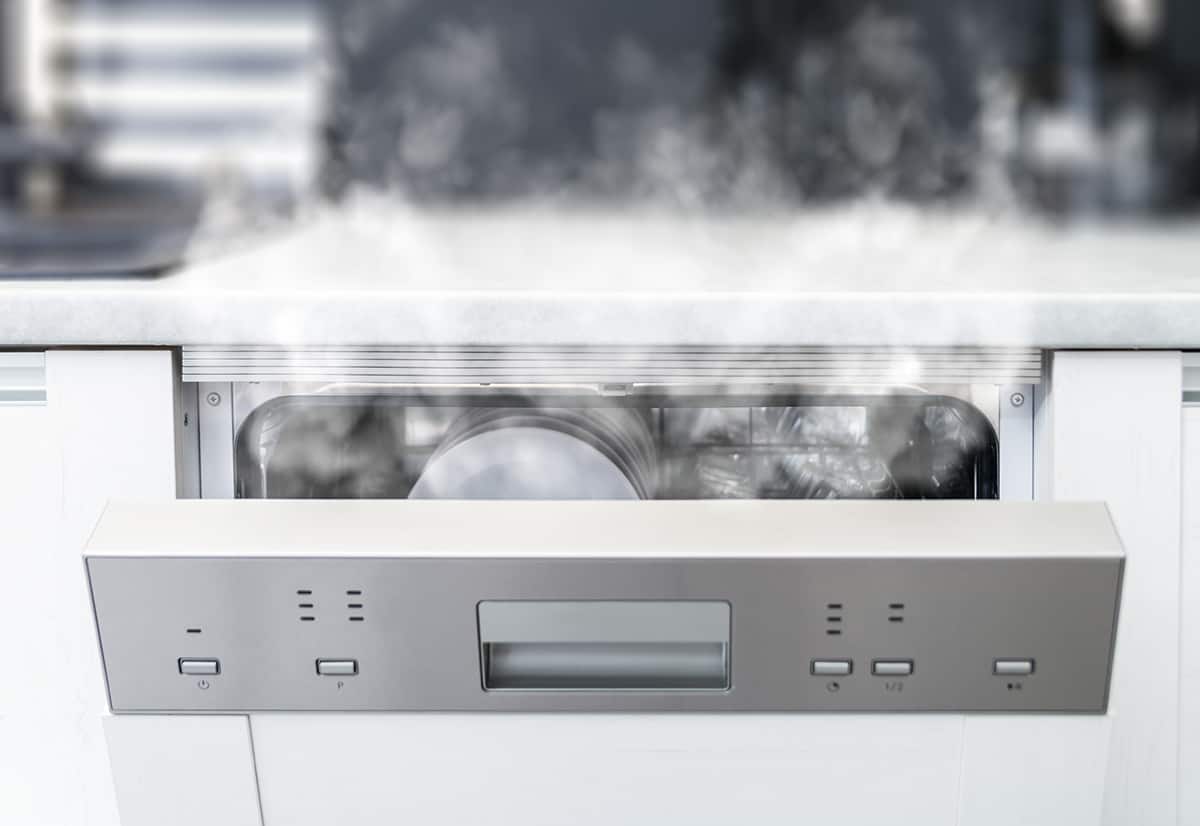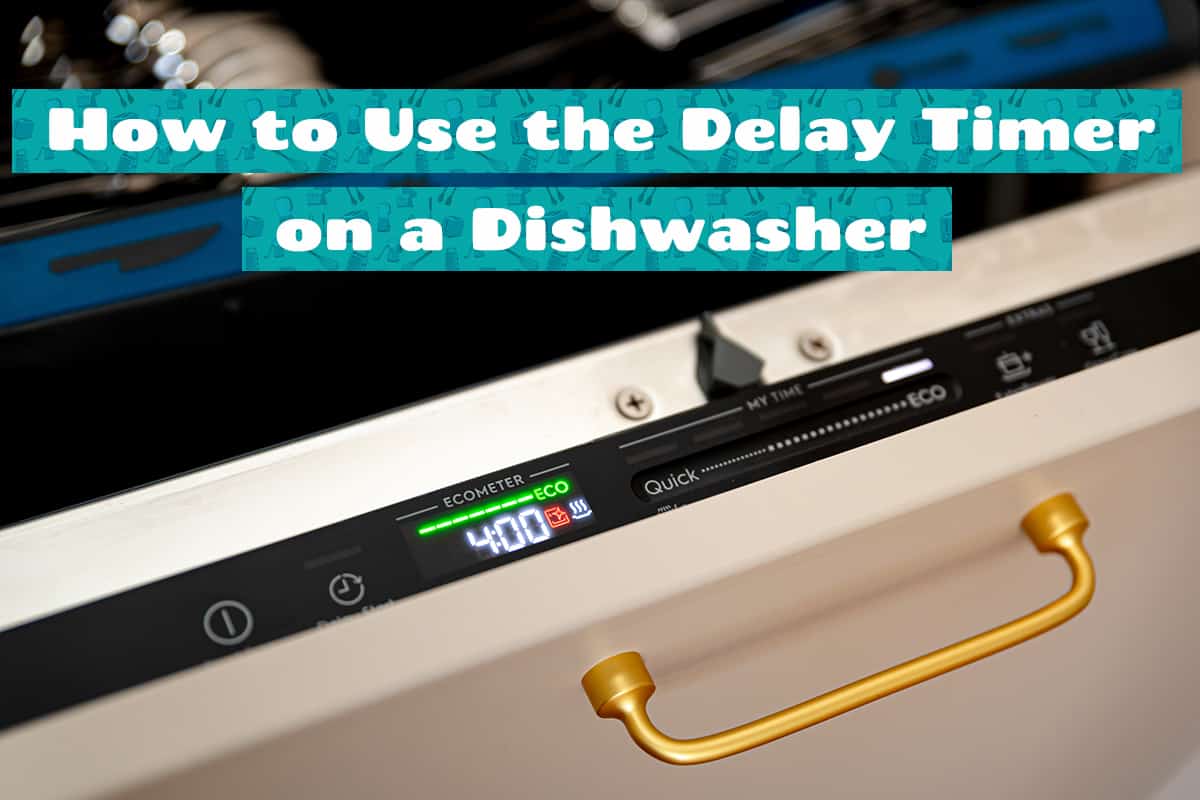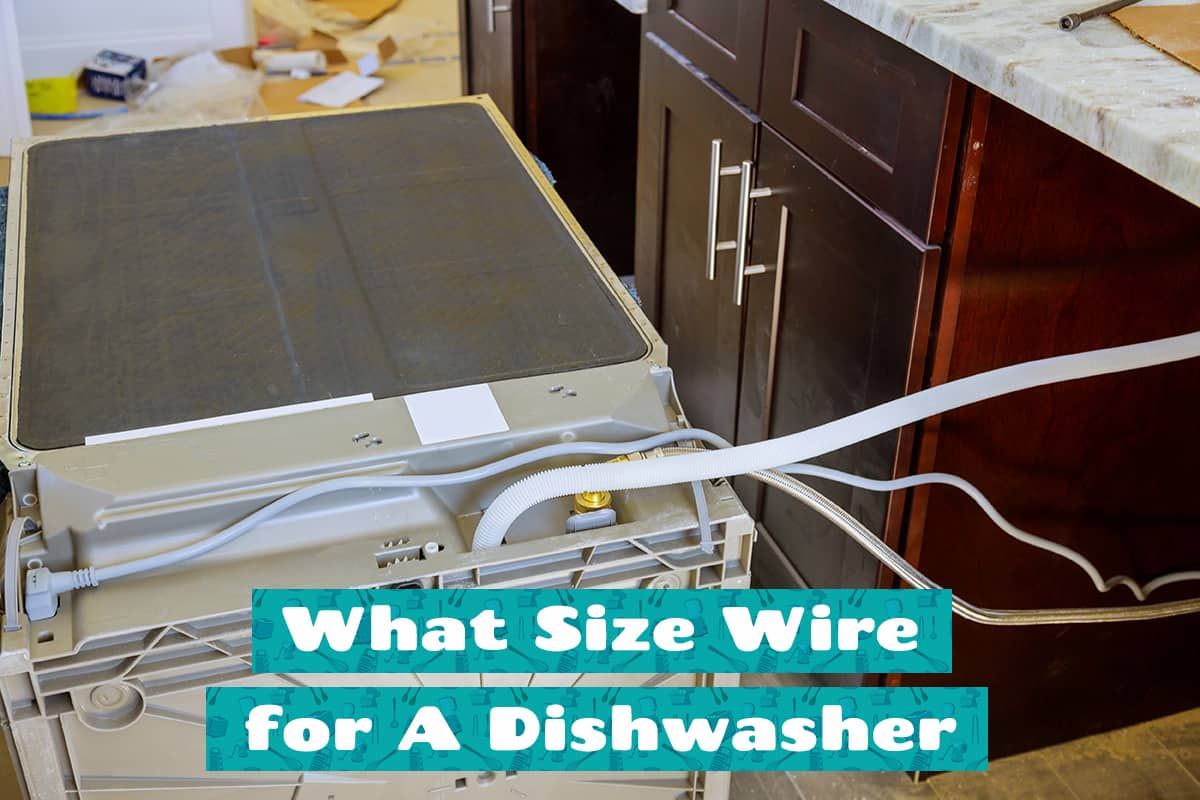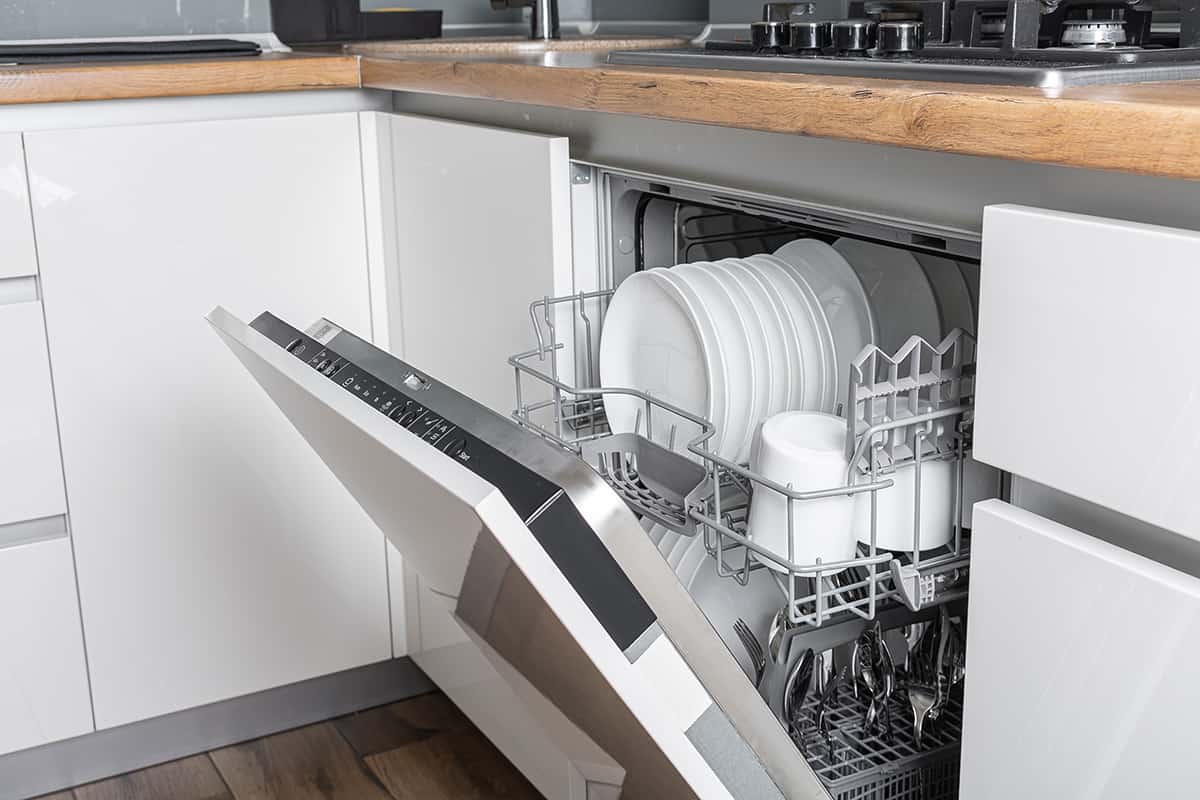It’s no secret that dishwashers use heated water to wash dishes. However, do you know how hot the water gets?
On average, a dishwasher will heat water to 120 to 140°F. Some dishwashers heat water to 150°F for additional sanitizing power. The temperature settings of a dishwasher will vary between wash cycles.
In this guide, I’ll explain how hot dishwasher water gets based, how dishwashers heat water, and how heated water helps dry your dishes.
How Hot Does a Dishwasher Get?
Have you ever compared the effectiveness of washing dishes with cold and hot water? In almost every case, washing with hot water leads to better results. This is because hot water dissolves food particles more easily than cold water. This is the basic principle behind why dishwashers use hot water.
However, how hot does the water get in a dishwasher? The exact temperature range varies from model to model and based on wash programs, but on average, dishwashers need at least 120°F water to wash properly. In many cases, the hottest a dishwasher will heat water to is 140°F, though there are some models that go up to and beyond 150°F.
How Long Does It Take a Dishwasher to Heat Water?
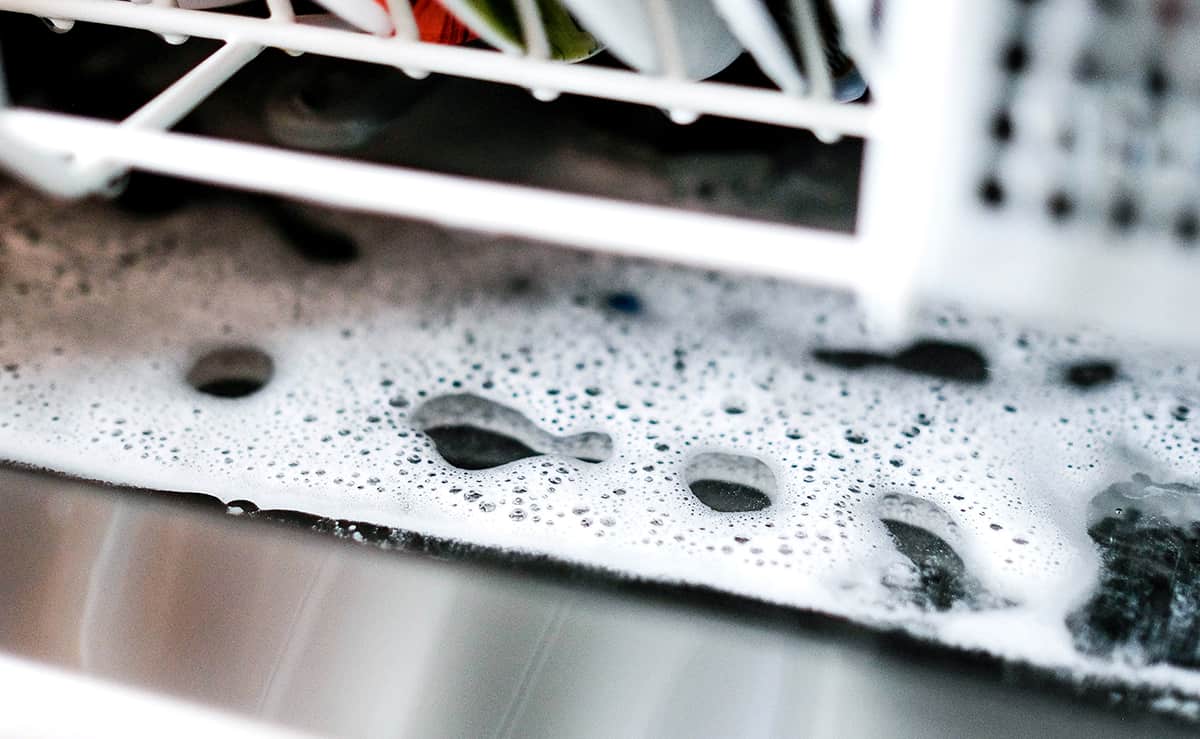
On average, your dishwasher should only spend roughly 1 to 2 minutes on heating up the water. It takes a while for the heating coil to reach its max temperature, which is the cause for the delay.
However, if it takes your machine longer to heat up water (there is a long delay between filling up and spraying water), you may need to contact a professional repairman to fix the heating issue.
How Do Dishwashers Heat Water?
If you look at the bottom of the dishwasher tub, you’ll find a coil that wraps around the entire perimeter of the base. That part is called the heating coil, which is connected to a heat motor. When you turn a dishwasher on, depending on the cycle, the heat coils will increase to a certain temperature and heat the water that fills the tub.
So, does that mean you don’t have to connect your home’s hot water supply line to your dishwasher? Well, it doesn’t really matter, but using the hot water supply line will reduce how long the dishwasher coils need to heat the water.
Dishwashers come with thermostats that measure the temperature of the water. Only after the water reaches a predetermined temperature based on the wash program will the dishwasher move onto the next phase (washing). You are more than welcome to connect your dishwasher to a neutral temperature line, but the coils will spend more time raising the temperature of the water.
How Do Dishwashers Dry Dishes?
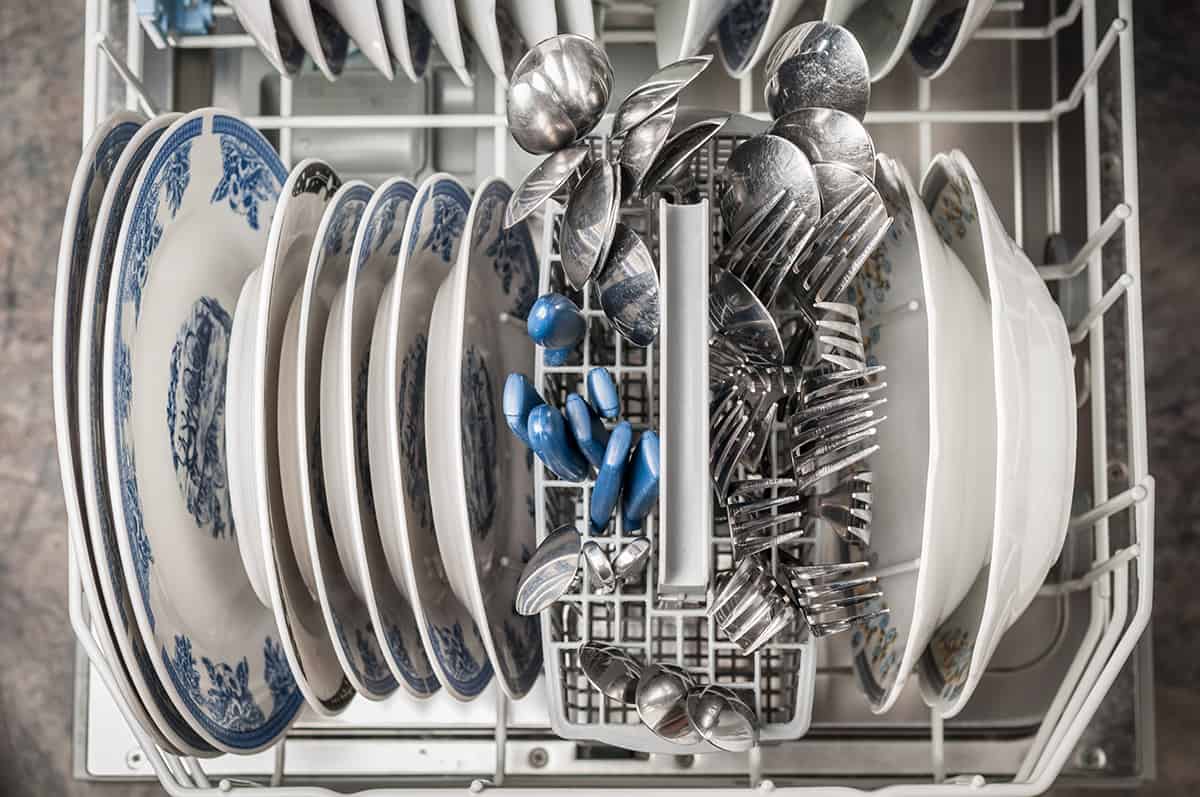
After the wash and rinse cycles are complete, the dishwasher will move to the final phase, which is drying. There are several heating methods employed by different dishwashers.
Back in the day, dishwashers would heat up the air inside the tub with the heating coils. A built-in fan would circulate the heated air throughout the tub, so water droplets on your dishes would eventually evaporate.
Modern dishwashers don’t come with fans or rely on activated heating coils to heat the inside. Instead, the residual heat from the rinse and sanitize cycles forces moisture droplets on your dishes to drip down into the tub.
What Is Rinse Aid?
Rinse aid is a drying agent that comes in liquid form. It goes inside the rinse aid compartment of your dishwasher, where it will get sprayed all over your dishes to coat them. Rinse aid is slightly hydrophobic, so when your dishes are coated in it, they will repel water.
What happens is water droplets will have a difficult time latching onto your dishes and slide right off. The result is dryer dishes in less time. However, rinse aid will not help in getting rid of pools of water—e.g., inside bowls, pots, and pans.
Do Dishwashers Use Cold Water?
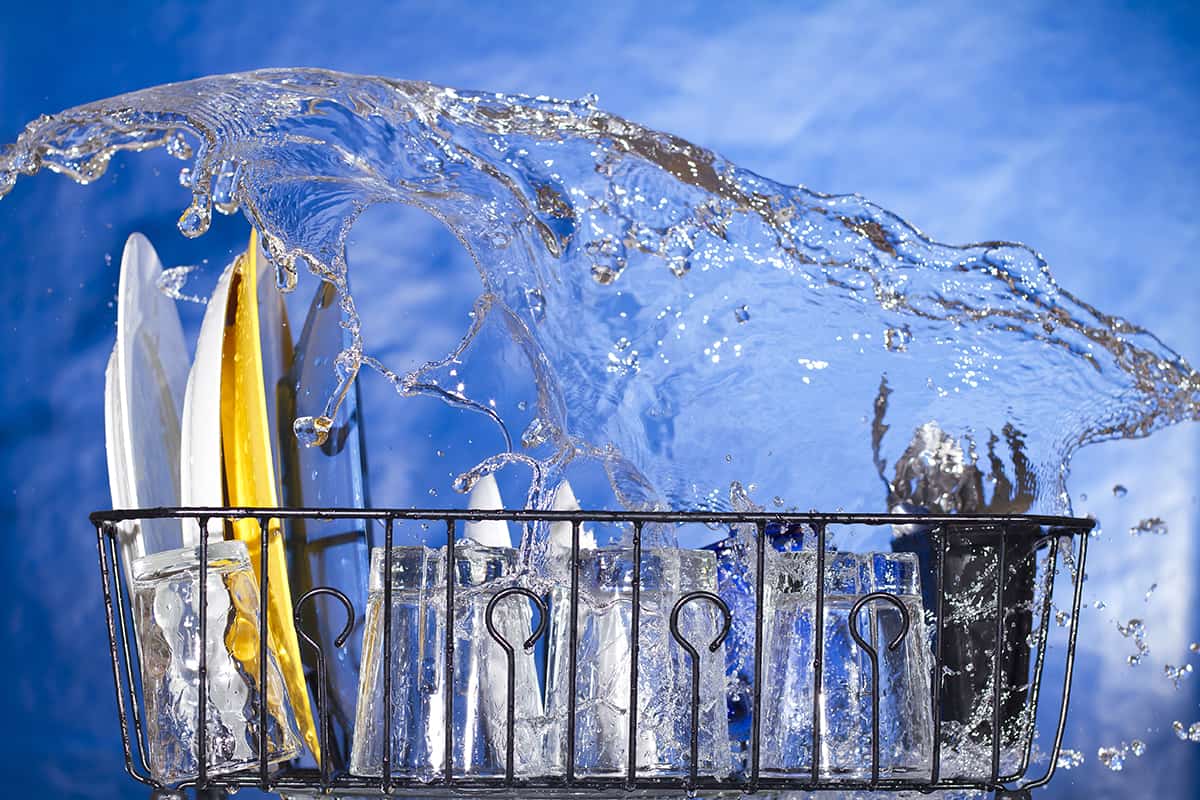
Yes, they do. Not every wash program will require heating up the water beforehand. For instance, an Express Rinse program will use whatever temperature water is available at the time. So, the heating coils will not turn on regardless of the temperature of the water.
However, heated dry and sanitize wash programs will not work without hot water. The dishwasher’s control board instructs the thermostat to keep track of the water’s temperature. If the coils somehow fail to increase the temperature of the water, the dishwasher will not begin the heated dry or sanitize wash program.
Can Dishwasher Water Be Too Hot?
Yes, it can. This usually isn’t a problem associated with your dishwasher. For instance, a dishwasher will only increase the temperature of the water beyond 150°F if it has a defective heating coil, thermostat, or heat motor. If your dishwasher is in working order, the thermostat will stop the coils from heating the water beyond a certain point.
On the other hand, if you have set your home’s water heater to beyond 150°F for one reason or another, the super-heated water may affect how effective the detergent is. This, in turn, can make it difficult for your dishwasher to wash dishes properly.
Another more serious problem associated with super-heated water is that it can damage the inside of the dishwasher. This is especially true if the cutlery basket and dish racks are made of plastic.
So, when setting up your dishwasher for the first time, go down to the water heater and check the water temperature. Ideally, the temperature will be between 110 and 130°F. To tell whether or not you need to adjust your water heater’s setting, turn on your sink and let the hot water flow for 15 seconds, then use a thermometer to check the temperature manually.
Also, if the water is too hot, it can increase the chance of limescale accumulation inside your dishwasher. Limescale is a hard deposit that is caused by calcium carbonate. It is usually a problem for homeowners who only have access to hard water (water filled with calcium and magnesium ions). Over time, the calcium ions will bundle up together to create a solid deposit that leaves a chalky residue, which can prevent your dishwasher from working properly.
What Happens When the Dishwasher Water Isn’t Hot?
If the water in your dishwasher isn’t hot enough, it will not activate the cleaning properties of the detergent, which can reduce how clean your dishes turn out. There might still be bits of solid residue clinging to your plates, or they may still be coated in a layer of grease. If your dishes aren’t as clean as you hope, try increasing the temperature of your water heater.
How to Heat Up Water Quickly
Dishwasher use between 1.2 and 1.5 kilowatt-hours of energy per load. Of that energy, roughly 55% is used by the heating element. However, you can reduce the amount of energy used to heat water by doing the following:
- Increase the temperature of your water heater. If the water source is preheated to 110 to 140°F, then your dishwasher will not need to use additional energy to raise the temperature of the water. However, the heating coil will turn on, but it will turn off not long after to commence the wash cycle.
- Turn on the hot water faucet for 30 seconds before starting your dishwasher. The hot water line is constantly filled with water, which cools down over time. Some of the cold water will enter your dishwasher, and the coils will be forced to heat that water up. You can avoid this by turning on the hot water in your kitchen sink and letting it run for 30 seconds. That way, the hot water supply line will be filled with freshly heated water.
